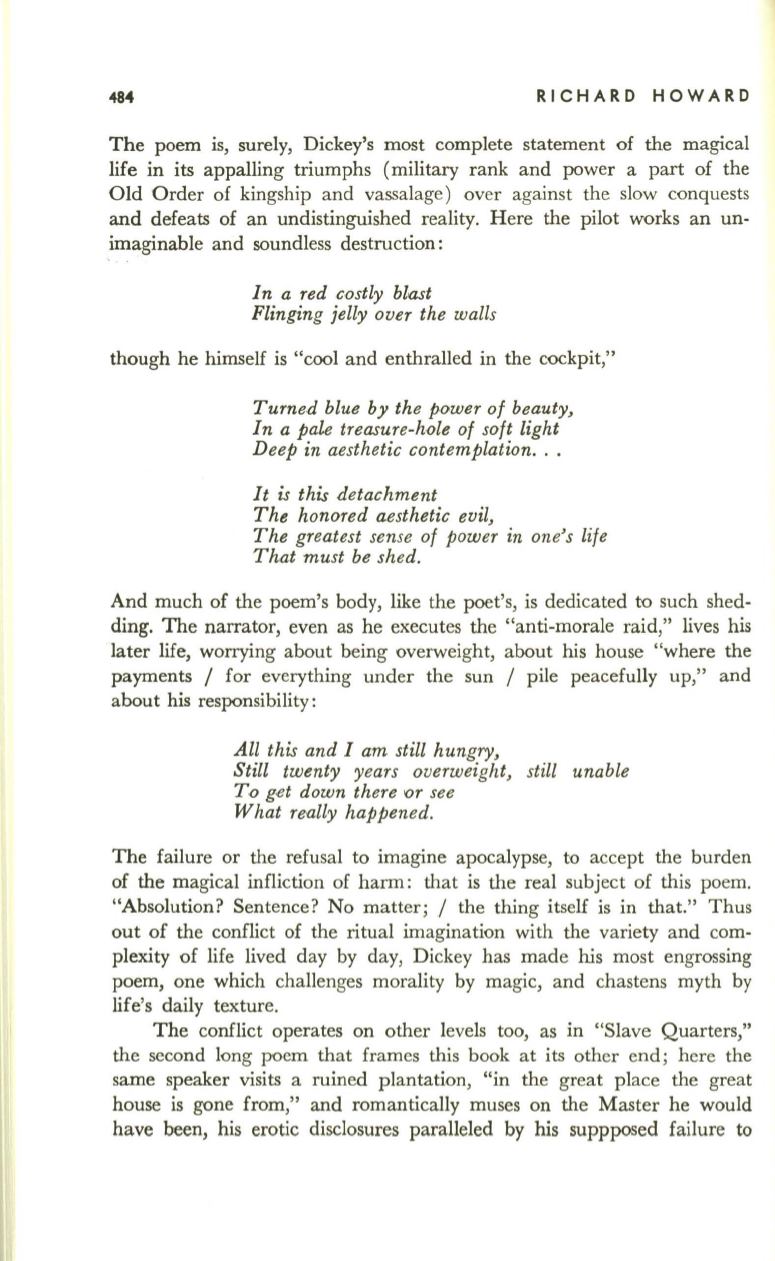
484
RICHARD HOWARD
The poem is, surely, Dickey's most complete statement of the magical
life in its appalling triumphs (military rank and power a part of the
Old Order of kingship and vassalage) over against the slow conquests
and defeats of an undistinguished reality. Here the pilot works an un–
imaginable and soundless destruction:
In a red costly blast
Flinging jelly over the walls
though he himself is "cool and enthralled in the cockpit,"
Turned blue by the power of beauty,
In a pale treasure-hole of soft light
Deep in aesthetic contemplation.
..
It is this detachment
The honored aesthetic evil,
The greatest sense of power in one's life
That must be shed.
And much of the poem's body, like the poet's, is dedicated
to
such shed–
ding. The narrator, even as he executes the "anti-morale raid," lives his
later life, worrying about being overweight, about his house "where the
payments / for everything under the sun / pile peacefully up," and
about his responsibility:
All this and I am still hungry,
Still twenty years overweight, still unable
T
()
get down there 'Or see
What really happened.
The failure or the refusal to imagine apocalypse,
to
accept the burden
of the magical infliction of harm: that is the real subject of this poem.
"Absolution? Sentence? No matter; / the thing itself is in that." Thus
out of the conflict of the ritual imagination with the variety and com–
plexity of life lived day by day, Dickey has made his most engrossing
poem, one which challenges morality by magic, and chastens myth by
life's daily texture.
The conflict operates on other levels too, as in "Slave Quarters,"
the second long poem that frames this book at its other end; here the
same speaker visits a ruined plantation, "in the great place the great
house is gone from," and romantically muses on the Master he would
have been, his erotic disclosures paralleled by his suppposed failure to


